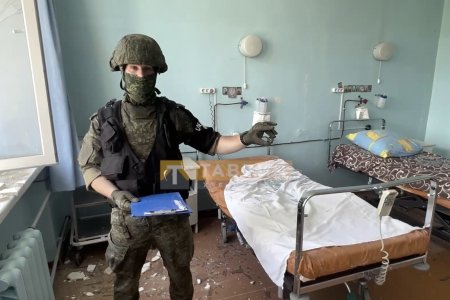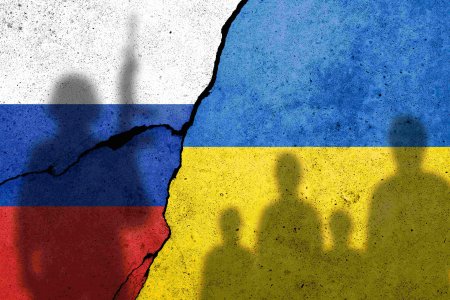
Denys Narolsky has been imprisoned since 25 January 2023, with a Russian court sentencing the Ukrainian from occupied Crimea to nine years’ maximum-security imprisonment for refusing to fight against Ukraine. A new ‘trial’ is now beginning with Narolsky accused of ‘state treason’, a charge that could result in a life sentence. Russia is in violation of international law in applying its legislation on occupied Ukrainian territory and in forcibly transferring Crimeans to Russia. The fact that Narolsky has Russian citizenship changes nothing as the aggressor state has made it impossible to live in occupied Crimea without a Russian passport.
Denys Narolsky (b. 5 May 1993) is from the Crimean village of Ivanivka, and has a small child. He was working as a car mechanic when, on 21 September 2022, Russian leader Vladimir Putin announced Russia’s so-called ‘partial mobilization’, with this including men from occupied Crimea.
Narolsky was ‘mobilized’ on 22 September 2022, and designated the commander of a motorized rifle squad. He left the military unit in occupied Sevastopol five days later, on 27 September, and, with help from his mother, moved from one place to another for several months. Criminal charges against the young man were first initiated on 16 December 2022 under Article 337 § 3.1 of Russia’s criminal code (going AWOL during a period of mobilization). This was, however, later changed to the more serious Article 318 § 3 (desertion during a period of mobilization). Narolsky was detained on 25 January 2023, and has been in captivity ever since.
The Memorial Support for Political Prisoners Project reports that, when interrogated, Narolsky admitted to the charges. He explained that he had not wanted to take part in the so-called ‘special military operation’ [i.e. Russia’s war of aggress against Ukraine] “as its objective is unclear to me”. He added that he had sought legal ways of revolving his dilemma, but had not found them and had therefore simply left his military unit. He stated that he had wanted to get to mainland Ukraine to somebody living in Dnipro, with whom he had earlier done military service and had investigated ways of getting there via Lithuania, Latvia and Poland. His communications with various departments, as well as with Ukraine’s Security Service [SBU], were via Telegram Messenger, and were, unfortunately, discovered when the Russians searched his mobile phone.
The ‘trial’ was held at the occupation ‘Crimean garrison military court’ under presiding ‘judge’ Pavel Nikolaevich Kotov, with Narolsky sentence on 30 March 2023 to nine years in a maximum-security prison colony. That sentence was upheld on 9 June 2023 by the Southern District Military Court under presiding ‘judge’ Nikolai Sergeevich Gulko.
It became clear at the end of December 2023 that Narolsky was also facing charges of ‘state treason’ under Article 275. No details are available of the specific charges, but it seems likely that Russia is using Narolsky’s attempt to get to mainland Ukraine as pretext and, perhaps, his contact with Ukraine’s SBU.
In explaining why it has declared Denys Narolsky a political prisoner, the Memorial Support for Political Prisoners Project points out that the draconian ‘desertion’ charge used to sentence the Ukrainian to 9 years was passed, as part of a whole package of measures, with blitzkrieg timing, and came into force on 24 September, three days after Putin’s decree on ‘partial mobilization’. The measures seriously impinge upon people’s rights.
The situation here is particularly serious as Russia was demanding that Ukrainians take up arms against their own country and fellow citizens on behalf of an aggressor state.
Narolsky stated during interrogation and in ‘court’ that he was categorically against any participation in military action, and had spoken of this also in correspondence regarding his wish to leave occupied Crimea. He wrote, for example, “The situation is as follows. I do not intend under any circumstances and conditions to fight Ukraine. I did not leave Crimea when I had the chance and now I regret that.”
Narolsky had done his military service before Russia’s invasion, but did briefly sign a contract with the Russian army in 2015. He was dismissed before the contract ended on disciplinary charges, and explained in ‘court’ that he had himself tried to resign after a former colleague told him that he could be sent to fight in Donbas. He has relatives and friends in mainland Ukraine, he added, who could be fighting in Ukraine’s Armed Forces, and had been unwilling to take part in the military conflict.
The new, extraordinary, charge of ‘state treason’ is almost certainly in reprisal for Denys Narolsky’s clear position, both in the above-mentioned correspondence, and on social media, that he could not take part in Russia’s war against Ukraine. The ‘trial’ began on 27 March 2024 before presiding ‘judge’ Gurlen Serzhikovich Dovlatbekyan of the Southern District Military Court. The next hearing is scheduled for 16 May, with it unclear whether Narolsky, who is a political prisoner, has an independent lawyer representing him and with the chances next to nil that he will receive a fair ‘trial’.



